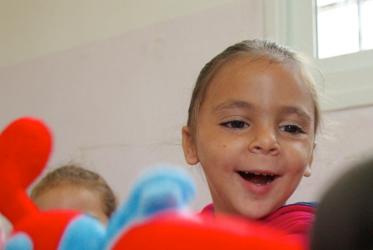República Checa
The Czech Republic was established in 1993, after the peaceful division of former Czechoslovakia into two states. The Czech are a Slavonic people who have been living in the area since the 5th century. From the 17th through the beginning of the 20th century the territory was part of the Austro-Hungarian Empire. Czechoslovakia was founded in 1918. It came under communist rule in 1948, after World War II, until 1989 when the Soviet bloc collapsed. The country was one of the industrial centres of the Soviet bloc. It has been rapidly adjusting to liberal economy and joined the European Union in 2004. During the communist period, the churches were to a large extent controlled by the Communist Party and were not allowed to work freely. Prague, the capital, was the home of the Christian Peace Conference. However, after the repression of the attempt to create a "socialism with a human face" in 1968, Prague became also a centre of dissidence in the Soviet-ruled part of Europe. The Ecumenical Council groups the main Protestant, Pentecostal, Orthodox, and Old-Catholic churches. The Roman Catholic Church, which is the majority church, is an associate member of the council. There is also a Czech Evangelical Alliance, which is affiliated with the WEA. The Czech land is the area of the early Reformer Jan Hus and the Moravians, who later moved to Hernnhut in Germany. The Baptist Theological Seminary, serving the whole of Europe, is located near Prague. The Czech Republic is today one of the most secularized countries in Europe.



